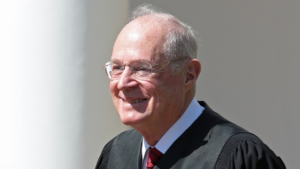I get uncomfortable when friends of mine become engaged in politics.
It’s about to happen again. The campaign for the 13th Congressional District has just welcomed a newcomer to politics. His name is Greg Sagan, who told local media that he only recently became a Democrat. What drove him to become a member of a political party? He said it was the election of Donald John Trump this past November as president of the United States.
So now he’s a politician. He is going to run against longtime Republican U.S. Rep. Mac Thornberry for the seat Thornberry has occupied since January 1995.
Pass the Pepto, will ya? This one gives me heartburn.
You see, I happen to be fond of Sagan personally. My wife and I have socialized with him and his wife. We’re also former colleagues of a sort. You see, back when I was editing the Opinion pages of the Amarillo Globe-News, Sagan was a regular contributor to the newspaper. He wrote a weekly column for the G-N. It was then that our relationship took root and then blossomed. His contribution to the newspaper ended when I resigned in August 2012.
I know Sagan to be a patriot. He served in the U.S. Navy and saw duty in Vietnam during the war that defined our generation. He is an unapologetic political progressive. He’s also a hell of a good writer. The boy can turn a phrase.
The campaign for Congress will get pretty damn serious around the first of next year, if not a bit sooner. My quandary centers on a couple of key points. One is that my wife and I most likely will have moved on by the time the campaign kicks into gear. I’ll likely be ineligible to vote in that election.
Of course, this blog will be firing plenty of ammo at this and/or that political target, which won’t take me out of the game completely.
I do not yet know how Greg is going to craft his campaign or what specifically will constitute his platform. Knowing him as I do I am certain he’ll hammer out a theme that makes sense, is cogent and is well-crafted.
He’s got a steep — I dare say nearly impossible — barrier to clear. If he’s the only Democrat to run in the 2018 primary, he’ll have to face a well-funded, well-seasoned and well-established incumbent who represents one of the country’s most reliably Republican congressional districts. GOP and, yes, Democratic partisans in Texas are known to be fiercely loyal to their officeholder.
I’ve known Mac Thornberry even longer than I’ve known Greg Sagan. I like Thornberry personally and over the years we’ve had a solid professional relationship and a cordial personal one. However, he has disappointed me many times over that span of time.
Is this the time for a change in our congressional representation? I don’t yet know. I do sense, though, that local Democrats are coping with the palpitations they get whenever someone emerges who they think can upset the status quo.
You go, Greg!








